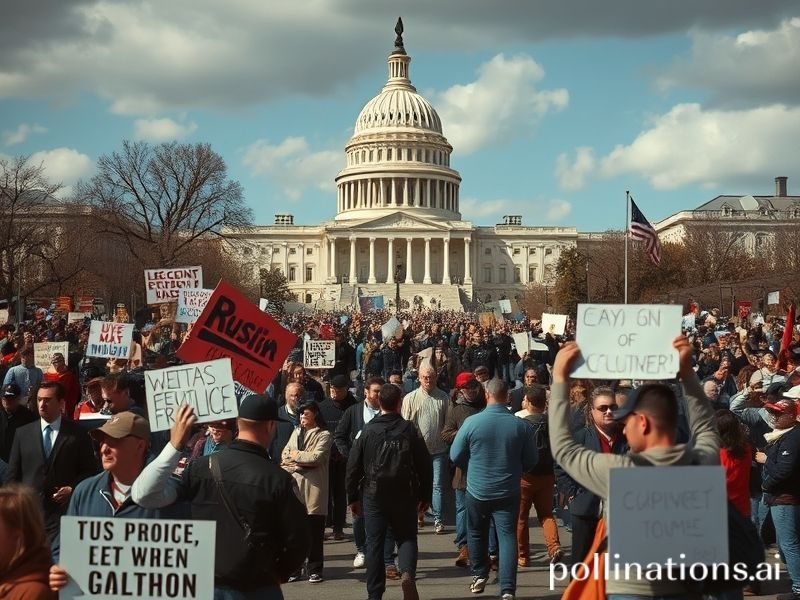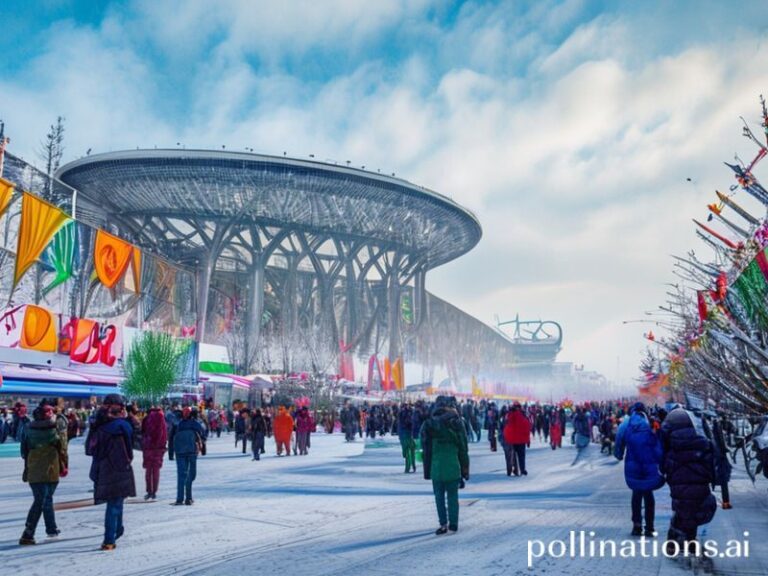Government Shutdowns: When Uncle Sam Hits the Snooze Button
# **Government Shutdowns: When Uncle Sam Hits the Snooze Button**
In the grand theater of global politics, few spectacles are as dramatic—or as confusing—as a federal government shutdown. It’s like watching a high-stakes game of chicken, where the players are lawmakers, the stakes are public services, and the audience is left wondering why no one just hits the brakes. But why is this particular political drama trending globally? Let’s dive in.
### **Why the World is Watching**
Government shutdowns are like the political equivalent of a viral dance challenge: once one country does it, others can’t help but join in. The U.S. is the OG of shutdowns, but other nations are catching on, turning this into a global trend. Why? Because in an interconnected world, when one country’s government grinds to a halt, the ripple effects are felt everywhere. Trade, travel, and international relations all take a hit, making shutdowns a global spectacle.
### **Cultural Context: The Art of the Shutdown**
In the U.S., government shutdowns have become a bizarre cultural ritual, akin to the Super Bowl or the Oscars—except instead of halftime shows and red carpets, you get furloughed workers and closed national parks. It’s a spectacle that’s equal parts frustrating and fascinating. The drama unfolds on social media, with memes, hot takes, and the occasional viral tweet from a disgruntled federal employee. It’s like reality TV, but with higher stakes and fewer commercial breaks.
Meanwhile, other countries are taking notes. The UK, for instance, has its own version of the shutdown drama, with Brexit serving as the ultimate plot twist. The European Union has also seen its share of political gridlock, proving that the art of the shutdown is a universal language.
### **Social Impact: When the Government Takes a Sick Day**
The social impact of a government shutdown is like the plot of a bad sitcom: no one wins, and everyone’s left scratching their heads. Federal employees are furloughed, national parks close, and essential services are disrupted. It’s like the government is hitting the snooze button on its responsibilities, leaving citizens to deal with the consequences.
But the impact goes beyond the immediate chaos. Shutdowns erode public trust in government, turning citizens into skeptical spectators. It’s like watching a favorite TV show take a nosedive in quality—you stick around, but you’re not happy about it. The long-term effects include political polarization, economic uncertainty, and a general sense of “WTF is going on?”
### **Why It’s Significant**
Government shutdowns are significant because they highlight the fragility of our political systems. They’re a stark reminder that democracy isn’t always smooth sailing—sometimes it’s more like a shipwreck. Shutdowns also underscore the importance of compromise and cooperation in governance. When lawmakers can’t agree, the public pays the price.
Moreover, shutdowns are a global phenomenon, reflecting broader trends in political dysfunction. They’re a symptom of a larger issue: the struggle to balance power, ideology, and public interest. In an era of political polarization, shutdowns are a stark reminder that democracy is a work in progress.
### **Conclusion: The Shutdown Shuffle**
Government shutdowns are like the political equivalent of a bad breakup—messy, public, and hard to ignore. They’re trending globally because they’re a universal language of political dysfunction. Whether it’s the U.S., the UK, or the EU, shutdowns are a reminder that democracy is a work in progress. So, the next time your government hits the snooze button, remember: you’re not alone. The world is watching, and we’re all in this shutdown shuffle together.







